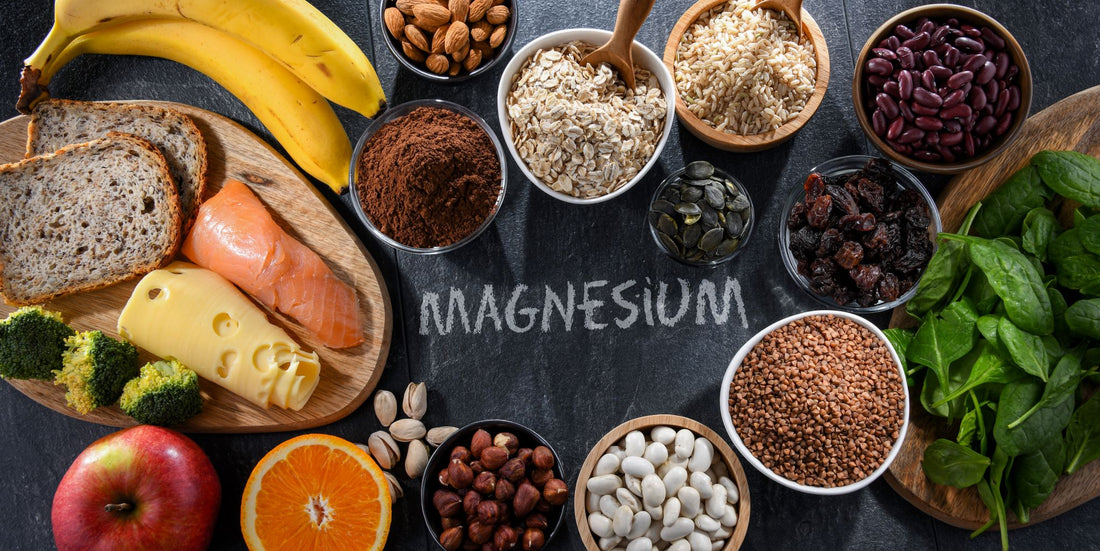Magnesium is an abundant mineral that’s involved in more than 300 enzymatic reactions in the body. Magnesium is involved in energy production, DNA synthesis, muscle contraction, and several other systems.**
It’s found in many foods like leafy green vegetables and legumes. Despite this, many families have a hard time meeting their magnesium needs. Whether it’s dealing with lack of time, picky eaters, or budgetary constraints, getting enough magnesium from your food can be difficult.
Therefore, many people look to supplements as a means of supporting their magnesium levels. With so many varieties, it can be hard to decide which magnesium type best suits your specific needs. Here we go over four different types of magnesium, their benefits, and their recommended use.
Magnesium Citrate
Magnesium citrate is magnesium bound with citric acid. Citric acid is typically found in citrus fruits like oranges and grapefruit.
It’s considered a good formula for laxatives because, when combined, magnesium and citrate cause the intestines to release water. This can soften the stool, which may help maintain regular bowel movements.** It’s suggested you take it when experiencing irregular bowel movements. KAL Magnesium Citrate Gummy is a great option for people who prefer the tasty orange & vanilla chewable.
Magnesium Malate
Magnesium malate is when magnesium is bound to malic acid. Malic acid is typically found in fruits and wine.
Some research suggests that magnesium malate is one of the most absorbable types of magnesium, increasing its bioavailability and, possibly, its efficacy. This could make it a great option for people who have typically low levels of magnesium.**
It’s also used to support cellular energy and healthy muscle function. KAL Magnesium Malate is recommended for people with low magnesium levels and for those who lead an active lifestyle.**
Magnesium Taurate
Magnesium taurate is when magnesium is combined with the amino acid taurine. Taurine is naturally found in meat, fish, and dairy products.
In addition to the calming effects magnesium has on the nervous system, research suggests that taurine helps the heart pump blood effectively throughout the body, improving blood flow and supporting heart health.**
KAL Magnesium Taurate + is recommended for people who want to support their nervous system and cardiovascular health.**
Magnesium Glycinate
Magnesium glycinate is when magnesium is combined with the amino acid glycine. It’s found in protein-rich foods like meat, fish, dairy, and legumes.
Magnesium glycinate offers relaxation support and, when combined with BioPerine®, may improve bioavailability, making it more easily absorbed.**
KAL Magnesium Glycinate 350 VegCaps is recommended for people who seek relaxation, healthy bones, and muscle maintenance support.** This new formula is the #1 Magnesium Product in natural food stores* and its easy-to-swallow design makes it a great option for many.
Which Magnesium is Best?
Magnesium is an important mineral involved in hundreds of bodily processes, making it a key player in your family’s health and wellness. Many people who lack the necessary amount of magnesium experience adverse symptoms in their energy levels, bone health, nerve health and many more areas.**
Supplements such as KAL Magnesium Glycinate 350 VegCaps are designed to offer your family support in these systems, when food is not enough to meet your nutrition needs.
With a variety of magnesium forms to choose from, you have the power to decide which one meets your family’s needs best. We hope that our overview of some of the different types of magnesium supplements helps you be better informed when choosing the supplement that’s best for you.




